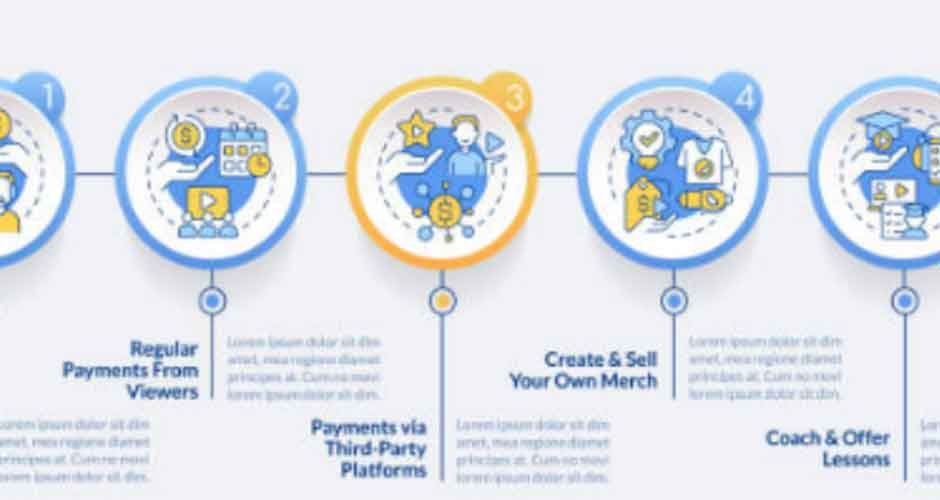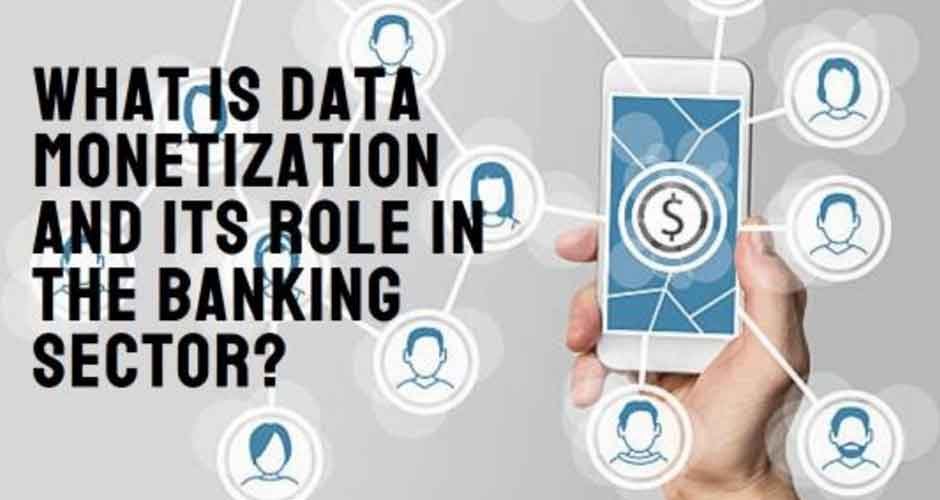The fast-growing emphasis on resilient business models and digital product innovation propels financial institutions to re-align their vision beyond traditional borders.
Today, with unlimited access to data, the banking sector is making myriad steps in adopting strategies that aim to increase its revenue stream and customer satisfaction while maintaining a competitive edge. With technological advancement, access to diverse data, artificial intelligence, and machine learning has made it possible to unleash multi-dimensional business insights through data monetization.
As the banks strive to gain competitive advantages over their rivals and widen their income margins, data monetization comes in handy to achieve these targets. It enables financial institutions to navigate challenges and find new revenue sources by leveraging different data monetization avenues.
Many sectors have realized the economic benefits of adopting data monetization strategies, hence increased data monetization use.
This article will explain the meaning of data monetization and its role in the banking sector.
What is Data Monetization?

Data monetization involves generating quantifiable economic benefits by using available data.
Today, data is a valuable asset that many organizations use to gain a competitive edge and make informed decisions to streamline internal operations and boost productivity. Like other sectors, Data Monetization in banking is increasingly unlocking new revenue opportunities and data-related services every passing day.
With the incredible benefits of data monetization, there is no better time for banks to learn effective ways to gather and analyze data. Therefore, if utilized well, data can be the backbone of every banking institution.
Types of Data Monetization
Usually, banks accumulate large amounts of data, ranging from financial transactions, customer feedback, and financial records to market trends.
By effectively analyzing and harnessing this data, banks can get valuable insight and various opportunities that can be monetized to create new income streams. Banks can achieve data monetization through two methods.
- Internal Monetization-This is the banking sector’s most commonly used form of monetization since it has few legal requirements and security. The bank uses its internal data slightly to achieve economic benefits such as reduced cost on expenses, improved profit margin, and cost savings. However, the extent of the economic benefits is limited to the structure and situation of every individual bank.
- External Monetization- Even though many banking institutions rarely use this method, it has more benefits than internal monetization. This method entails producing, packaging, and distributing data to potential buyers. The banks sell their valuable data to other institutions or third parties, increasing revenue streams.
The Role of Data Monetization In The Banking Sector
Data analytics has become increasingly important in the banking sector in recent years. Even though developing and implementing this innovative strategy can be costly, its significance cannot be underestimated.
Below are the crucial roles that data monetization plays in the banking sector.
1. Creating Additional Sources of Income
Banks partially depend on external data monetization as an additional source of income. Even without selling the valuable data asset to other institutions, data monetization avails other income-generating opportunities for the bank to indulge in.
Banks can get insights into innovative opportunities to generate extra income through data analytics. For instance, customer behavior and feedback data may unveil a niche in customer trends, propelling the creation of a new product to meet the newly discovered demand.
2. Streamlining Operations
Besides widening profit margins, every banking institution’s priority is optimizing its operations and enhancing cost efficiency. By leveraging data monetization, banks can effectively analyze internal data to gain insight into employee performance, daily operations, and resource allocation.
The banks use real-time data to make informed decisions and implement favorable policies that streamline normal processes and correct inefficiencies. Therefore, data monetization is critical in helping banks allocate resources for optimum performance, automating repetitive tasks, reducing manuals, and improving overall operational efficiency.

3. Improve Risk Management
The banking sector is bound to cyber security threats and other malpractices due to the nature of its services. Therefore enhancing security and protecting the customer’s information is very important to any financial institution wanting to win the trust and loyalty of its clients.
By leveraging data analytics, the banks can effectively detect and prevent fraudulent transactions on time, minimizing financial loss and safeguarding the customers’ assets, and strengthening their reputation.
Lastly, to mitigate the lending risks, banks can embrace a data monetization strategy to make informed decisions on lending by establishing risks associated with giving credit to clients in particular economic times.
That way, the bank will learn other ways to grow its market share while lowering the chances of incurring losses.

4. Enhancing Customer Experience
Providing exceptional customer experience is very important in the banking sector. So, analyzing customers’ data allows banks to understand their tastes and preferences better.
Data monetization is critical in helping banking institutions offer personalized recommendations and campaigns to customers. Therefore, providing personalized services and experiences goes a long way in improving customer experiences.
For any bank wishing to enhance the customer experience, it should perform a thorough analysis of consumer behaviors, transactions, and browsing history.

5. Enhance Compliance and Regulatory Reporting
Like any other sector, the banking industry is subject to state regulations and reporting. Data monetization helps banks streamline the compliance and reporting process to avoid unnecessary penalties. Through data analytics, the banks can ensure timely regulatory reporting and improved compliance by automation.
6. Building Strategic Relationships
Data monetization avails innovative services that generate additional revenue for the banks and build strategic relationships with external partners such as suppliers, other financial institutions, and manufacturing companies.
By developing data monetization strategies, banks can offer valuable insights and data analysis services to the third-parties and receive a significant stipend in return.

Conclusion
In this digital era, data increasingly continues transforming the banking sector in developing and implementing strategic policies to widen revenue streams.
Today, financial institutions have much more capabilities to collect, analyze and disseminate data for internal and external purposes through data monetization. If you want your banking business to remain relevant and competitive, you must implement a data monetization strategy now.
You will get valuable insights that will help you understand your customers better, build strategic relationships, enhance customer experience, and bring new opportunities for product development.






